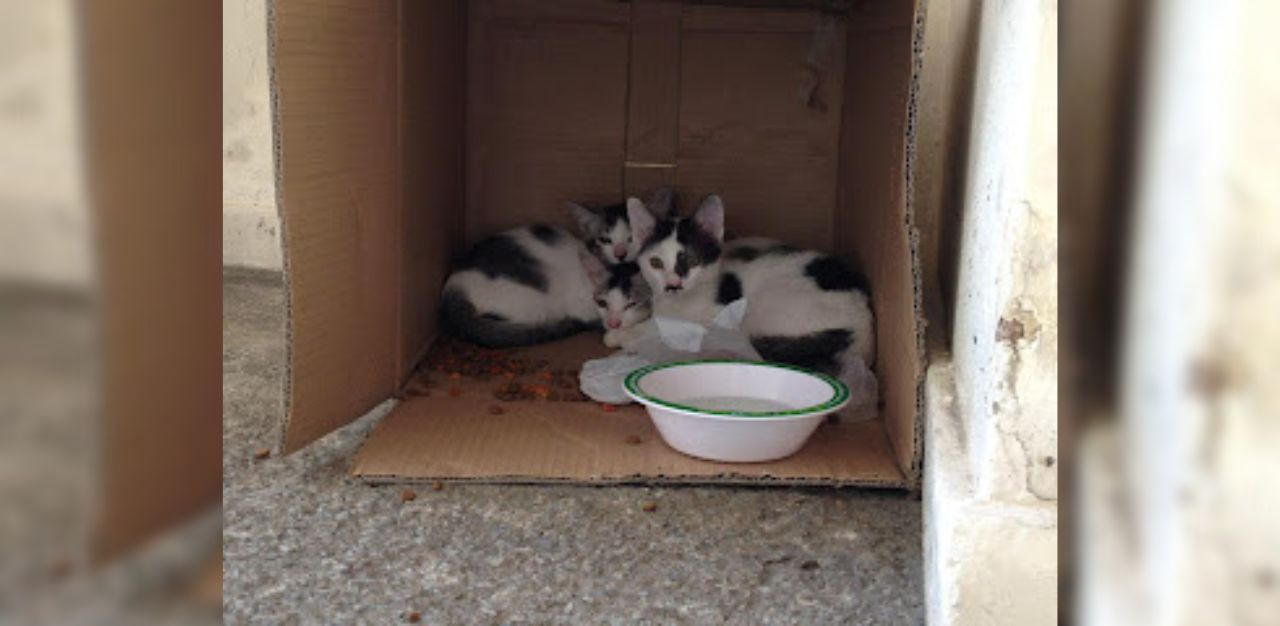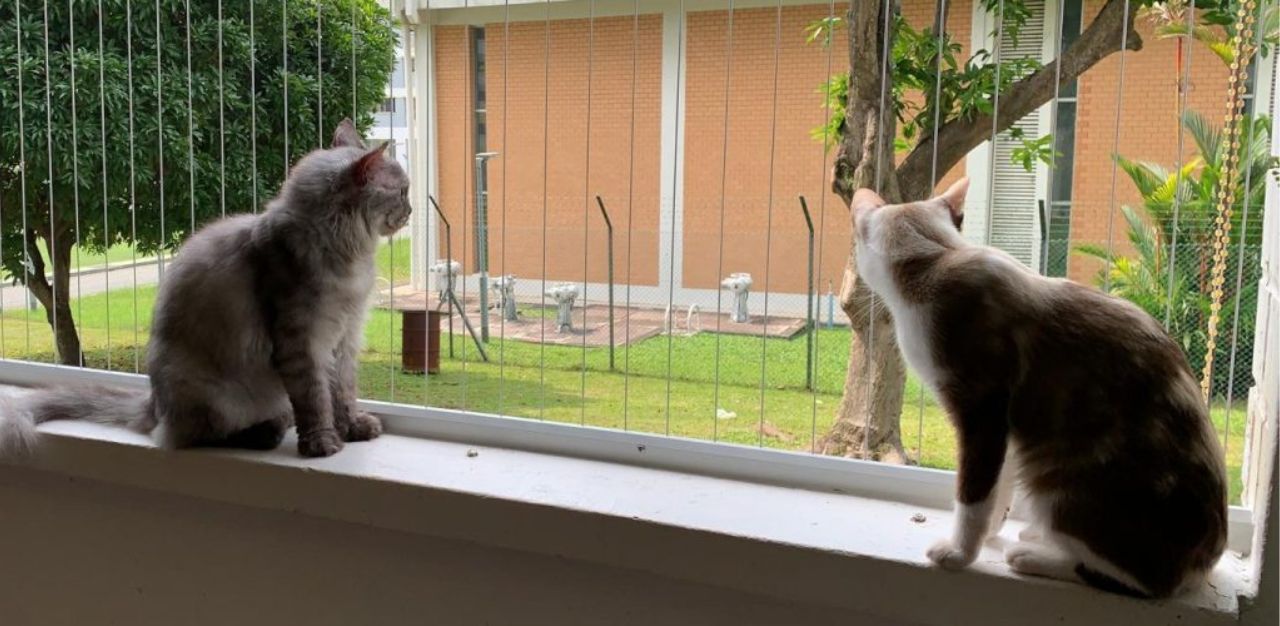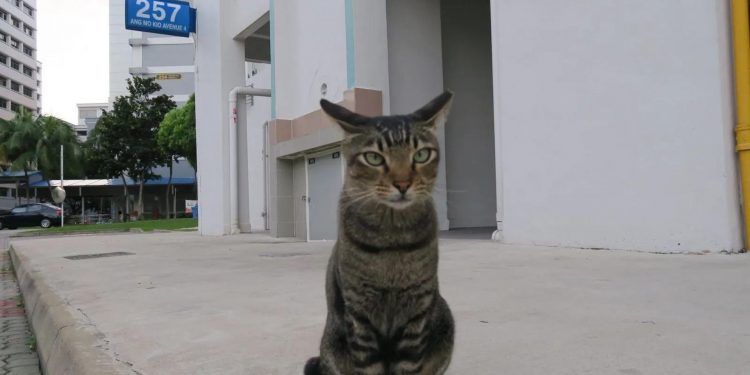(Updated on 5 Sep 2022)
Cats are not allowed in flats, says the HDB website.
Dogs, on the other hand, are. That is, only when they are HDB approved breeds.
And small animals like rabbits and guinea pigs can continue to live with their heartland dwelling owners. So, why not cats? This regulation on cat ban has been long debated by HDB residents and feline lovers.
The Animal & Veterinary Service (AVS) is seeking public feedback on its proposal to improve the management and welfare of cats, including possibly allowing pet cats in HDB flats. It has launched an online public consultation on 3 Sep for its proposed strategies on the management of pet and community cats in Singapore. This will help safeguard public health, and better protect the health and welfare of Singapore’s pet and community cats.
HDB’s reason for the ban of cats in the first place?
“Cats … are generally difficult to contain within the flat. When allowed to roam indiscriminately, they tend to shed fur and defecate or urinate in public areas, and also make caterwauling sounds, which can inconvenience your neighbours.”
Member of Parliament (MP) for Nee Soon GRC Louis Ng says dogs and birds are also “generally difficult to contain within the flat”, and when allowed to roam indiscriminately, dogs, too, “tend to shed fur and defecate or urinate in public areas”. And yes, dogs bark.
Mr Ng has been an ardent advocate for the lifting of the ban for some time. The founder of the animal welfare charity Animal Concerns Research and Education Society (ACRES) has brought the topic up many times both in his personal work and in Parliament since he was first elected in 2015.
In an Oct 2020 parliamentary debate, MP Ng called for a review of the ban to reflect reality. He said: “Sir, I sincerely hope that MND will amend the Housing and Development (Animals) Rules to reflect what we already accept in reality – that HDB residents are allowed to keep cats, which can be removed if they are found to cause disamenities in the community.”
In response to the debate, Minister of National Development Desmond Lee said, “HDB’s pet ownership policies seek to strike a balance between residents who are pet lovers and those who are not” and that the HDB will “review and update our pet ownership policies to ensure that they are effective and balance the needs of different stakeholders”.
This “striking of balance” mentioned by Mr Lee proves a delicate task with proponents of the ban continue to be seen in forums and the more creative channels. As the discourse prolongs and parties deliberate on the ays and nays of the issue, it remains clear that the ban is no cat-and-mouse game.
Others also weighed in on the issue.
President of Law Society of Singapore (LawSoc) Adrian Tan wrote on his Linkedin profile that the reasons given by HDB for the ban of cats are “terrible” and questioned the purpose of a rule that is not enforced.
Journalist Denise Chong echoed similar sentiments in a recent opinion piece. citing the disamenities of residents from cats to that of second-hand smoke and noise pollution.
Responsible pet ownership
Executive Director of the Society for the Prevention of Cruelty to Animals (SPCA) Aarthi Sankar, says that a “rigorous system” needs to be in place.
“Despite the ban, people have continued to own and care for cats in HDB flats. There are also instances where cat owners practise ‘casual ownership’, allowing cats to roam freely for parts of the day, in fear of being penalised for not complying with the law. Lifting the ban while instating a rigorous system that ensures proper accountability will help improve cat welfare and minimise the abandonment and neglect of pets,” she says.
The SPCA is Singapore’s largest and longest serving animal welfare organisation, and has long called for authorities to lift the ban on cat ownership in HDBs.
She adds: “The laws could also require cat owners to microchip and register their cats, similar to what is currently done for dog ownership. This will deter irresponsible abandonment of pets, and enable authorities to effectively track and penalise errant pet guardians who commit acts of neglect and abuse.”

To a March parliamentary question by opposition politician and MP for the Aljunied GRC Leon Perera on pet abandonment, the MND responded that NParks had looked into 225 cases of animal abandonment in 2021, an increase of 25 per cent since 2017. Of these cases, 11 persons were issued composition fines, 21 persons sentenced in court and fined, and one was jailed. About half the cases investigated, and half the cases in which further action was taken, involved cats.
According to the law, first-time offenders can be fined up to $10,000, or jailed up to 12 months, or both.
In addition to enforcing and tracking, Ms Sankar says cat owners need to be responsible in providing their cats with a suitable environment for their safety.
“It is equally important to encourage better practices such as ensuring cat owners mesh their windows and doors to avoid the cats from falling from height and free-roaming. This will help ensure a safer society for both animals and humans. The SPCA sees an average of five cases of animals falling from height each week, half of them do not survive. There may be more, as these are only the cases we see at our clinic,” she says.

Pilot programmes to live in harmony with cats
A two-year new pilot programme called ‘Love Cats’ was launched by Law and Foreign Affairs Minister K. Shanmugam in October 2012, where residents in over 120 blocks in Chong Pang were allowed to have cats in their HDB flats.
Mr Shanmugam said, “The pilot project will encourage all stakeholders to work together to create and maintain a harmonious living environment between neighbours and their pets” adding that “it can be a good model of what can be achieved through the partnership of the community, animal welfare groups and government agencies” if the programme is successful.
The participants of the pilot programme needed to comply with the ownership conditions and a code of responsible behaviour, involving stakeholders like the Cat Welfare Society and Agri-food & Veterinary Authority of Singapore (AVA), where the programme is still in existence in Chomp Pang.
In July 2018, responding to a parliamentary question from Mr Murali Pillai whether there were plans to expand the pilot programme to other constituencies, the MND replied in a written statement,
“This is a community-owned project, and requires the sustained support of residents, grassroots leaders, and MPs. Its success is contingent on responsible pet ownership and neighbourly conflict resolution between residents. Among other measures, CWS has been working with the Chong Pang community to sterilise the cats to minimise the risk of dis-amenities, and to microchip them to strengthen owner accountability. These are required for the long-term success of this pilot. We can consider further expansion when the Chong Pang pilot meets these outcomes, and when there is strong community support in other parts of Singapore.”
The CWS recently conducted an independent study to assess public sentiment on legalising cat ownership surveys in the neighbourhoods of Nee Soon East, Boon Lay, and Chai Chee and Bedok. From the survey, the CWS developed responsible cat ownership standards titled “Cats in Flats”.
Under the standards, the CWS spelled out four main points where “cats must be kept safely indoors; pet cats must be microchipped and sterilised once old enough (at approximately 5 or 6 months); all windows, gates, service yards, balconies and such should be secured with grilles and meshes no wider than two inches”.
“CWS’ recent surveys show that there is a strong case to extend the pilot and overturn the ban on cats in HDBs. CWS has been sharing the results of the surveys with AVS and various Ministers to advocate for the repeal. We hope to see steps taken to revise the legislation to allow for cat ownership in HDBs to be legalised and standards to be set for responsible cat ownership” says its president Thenuga Vijakumar.
“Legalisation will not encourage or cause hoarding. There is no correlation. Instead, the survey shows that the typical cat owner has three or fewer cats and the lack of regulations on what constitutes cat ownership is the real issue as there is no standard to hold irresponsible cat owners accountable to,” she adds, referring to an upcoming survey on profiles of cat owners and common misconceptions of cat ownership.
No cat ban in the doghouse
From having a cat breed named after Singapore originating from the Nation’s drains, to everyone’s favourite community cat you meet after work, to yet another cat-based mascot in promotional campaigns, the debate spanning over three decades on the double-standard in the enforcement of HDB’s cat ban is still going on. And while the responsibility or lack thereof gets pushed around from advocacy groups to pet owners to friendly neighbours, it seems that the debate might carry on for another three more decades.
And though cats may be let out of the bag and roaming the streets, they are not off the books. At least, not yet with the HDB.
RELATED: Abandoned pets: Thrown out like trash by their pandemic owners
Join the conversations on TheHomeGround Asia’s Facebook and Instagram, and get the latest updates via Telegram.














